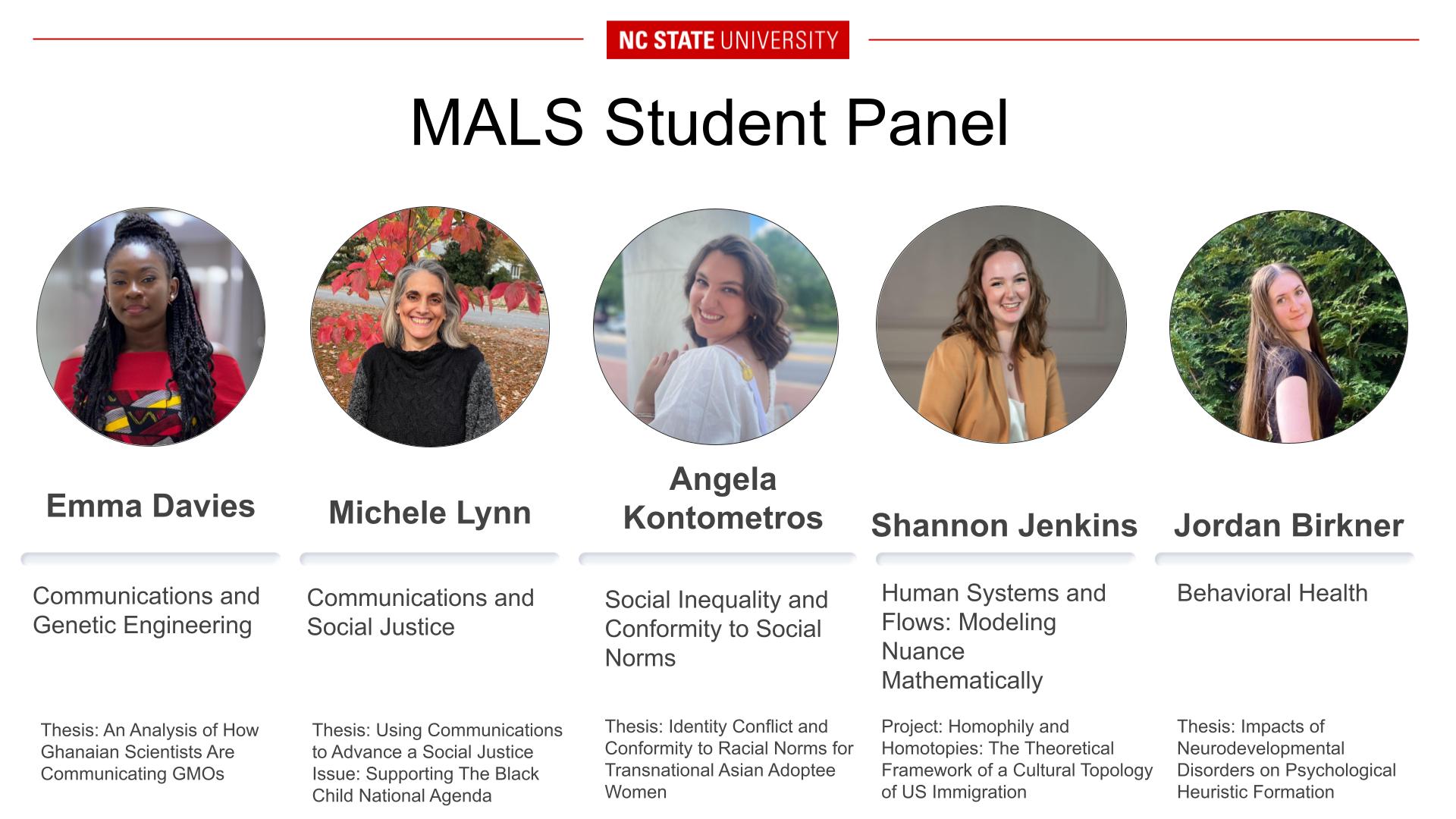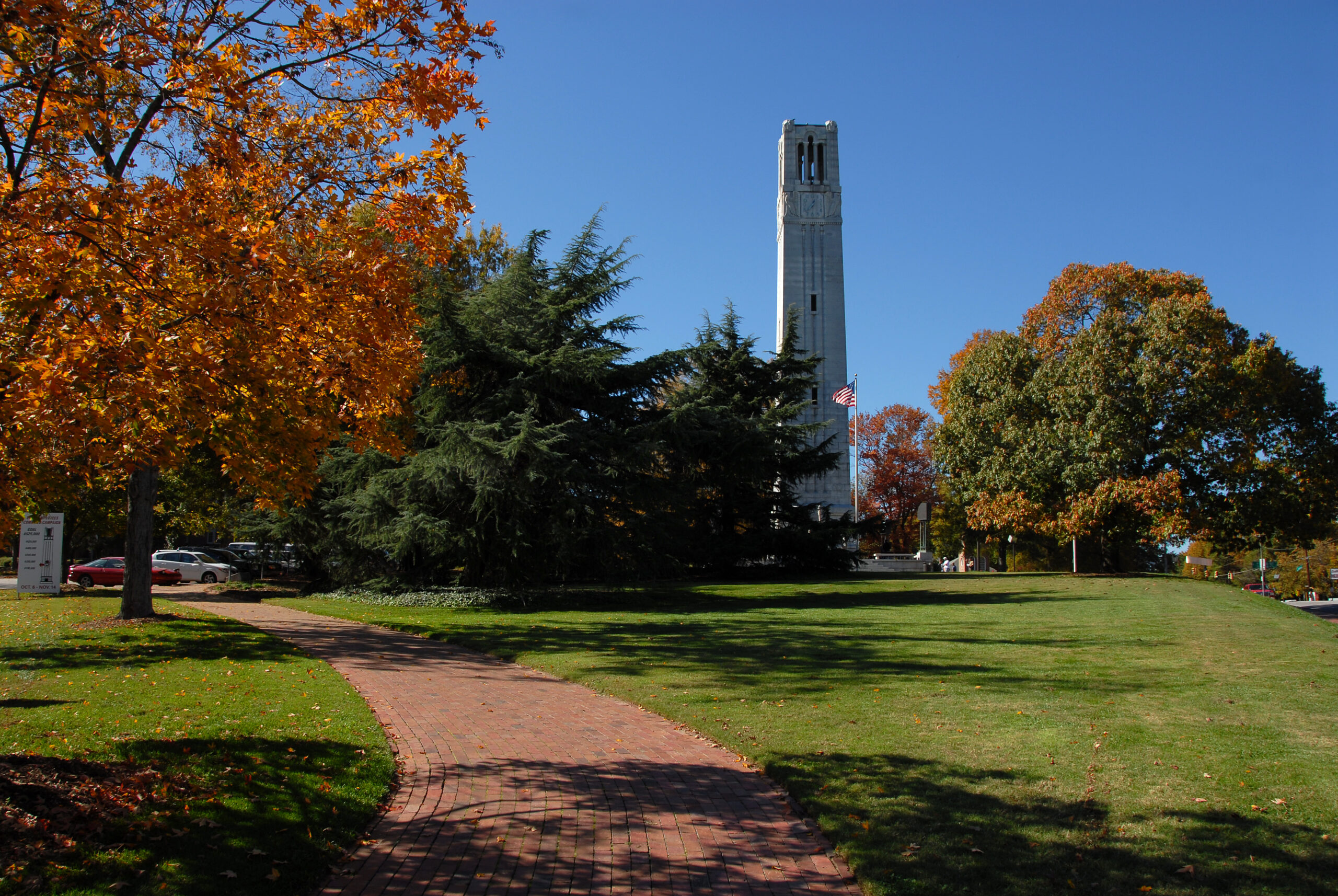Lani St. Hill has dedicated over a decade to sustainability and communications at NC State University. As the Communications and Engagement Coordinator for NC State’s Sustainability Office, she has played a pivotal role in shaping the university’s climate action narrative. In 2024, she added another achievement to her resume: earning a Master of Arts in Liberal Studies (MALS) degree with a concentration in climate justice. Her award-winning essay and capstone project examined the intersection of student activism, social media, and institutional influence in driving climate justice on college campuses.
Recognizing Excellence: Confluence Writing Award
St. Hill’s essay earned her a 2024 Confluence Writing Award, specifically the Excellence in Interdisciplinary Writing Award, an honor presented by the Association of Graduate Liberal Studies Programs (AGLSP). This award recognizes outstanding interdisciplinary writing that demonstrates critical thinking, originality, and scholarly excellence. Her paper stood out for its innovative approach to climate justice and student engagement, making a significant contribution to the discourse on sustainability in higher education.
Finding a Passion for Climate Justice
St. Hill’s academic and professional journey is driven by a deep commitment to social equity within environmental action. “The work that I do is always because of a personal ethos—wanting to do good for the world,” she shares. Her research explored how cultural values shape policies and the role that universities play in fostering climate justice. She found that students have consistently been at the forefront of major social movements, and their advocacy efforts can spark systemic change. Her project focused on how higher education institutions can amplify student voices through digital marketing and engagement strategies.
The Role of Social Media in Climate Advocacy
A significant aspect of St. Hill’s research highlighted the power of social media—particularly Instagram—as a tool for climate activism. “Social media creates social norms, builds connections, and provides a platform for knowledge-sharing,” she explains. Studies show that students in higher education engage with sustainability and climate issues more actively on Instagram than on any other platform. St. Hill’s research emphasized the importance of universities leveraging their digital presence to showcase student-led climate initiatives.
“Students are already leading the way—we’re just following their lead,” she says. “By giving them a platform through university accounts, we amplify their efforts not just among their peers but also within the broader campus community, including university leadership.”
Fostering Cultural Change for Climate Justice
For universities looking to support climate justice, St. Hill believes the key lies in fostering inclusivity and amplifying diverse voices. “Sustainability should be embedded into daily life in a way that resonates with people across different backgrounds and beliefs,” she says. “Highlighting a range of perspectives helps create a shared understanding that climate action is a collective responsibility.”
Her work at NC State embodies this approach. In her role as Communications and Engagement Coordinator, she mentors student interns who manage the office’s social media presence. These students, often from non-environmental disciplines, learn about sustainability while developing skills in digital engagement. “It’s incredible to watch them connect the dots and realize how their individual expertise can contribute to environmental advocacy,” St. Hill notes.
The Power of Interdisciplinary Thinking
The interdisciplinary nature of the MALS program was instrumental in shaping St. Hill’s research. She drew from behavioral sciences, digital marketing, and social justice studies to craft a comprehensive framework for engaging students in climate activism. “Each discipline has its frameworks and goals, but when woven together, they create a powerful narrative that can inspire cultural change,” she says.
Despite the benefits of an interdisciplinary approach, she acknowledges the challenges of integrating diverse fields. “Marketing focuses on engagement metrics, social justice prioritizes policy change, and environmental science is data-driven,” she explains. “But when you find common ground between them, the impact is far greater.”
Advice for Aspiring Writers and Researchers
St. Hill’s advice for graduate students aiming to produce impactful interdisciplinary work is simple: write every day, stay open to new ideas, and revisit your work with fresh eyes. “More often than not, we write way more than necessary,” she laughs. “Don’t be afraid to cut it down. If it’s too long, people won’t read it.”
She also emphasizes the importance of seeking diverse feedback. For her capstone, she consulted faculty members from different disciplines to ensure a well-rounded perspective. “Hearing from others helps refine your work and makes it more accessible to a broader audience.”
Looking Ahead: Expanding the Impact of Climate Advocacy
St. Hill’s research doesn’t end with her degree. She has already presented her findings at two conferences and developed a toolkit for other universities to implement similar student engagement strategies. Given that dedicated sustainability offices and communications roles are rare in higher education, she hopes her work will make it easier for institutions to spotlight student-led sustainability initiatives.
Beyond institutional outreach, she continues mentoring students through NC State’s sustainability internship program. “My goal is to equip them with the knowledge and confidence to be leaders in climate advocacy, no matter their field of study,” she says. Through her research, mentorship, and advocacy, Lani St. Hill exemplifies how interdisciplinary thinking and strategic communication can drive meaningful change. As universities continue to grapple with sustainability challenges, her work serves as a powerful reminder that students are not just part of the conversation—they are leading it.
- Categories:



